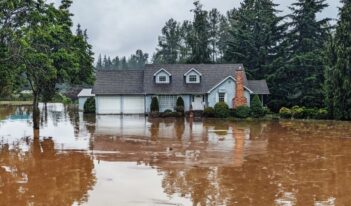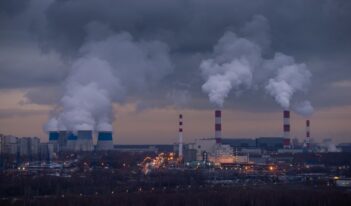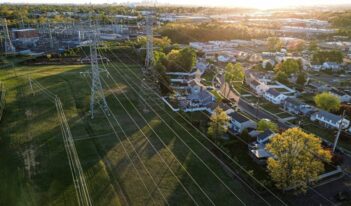
Scholar highlights the national security concerns connected with a changing climate.
The nations of the world are gathered in Paris, attending the 21st Conference of the Parties under the auspices of the United Nations Framework Convention on Climate Change. The hope for the Conference is that nations will reach an agreement to keep global warming below 2 degrees Celsius to avoid the most catastrophic impacts of climate change.
Not only the environment is at stake. Although much controversy has swirled around Bernie Sanders’s claim during the first Democratic Presidential debate that climate change is an urgent matter of national security, in fact, Sanders is merely echoing what the U.S. Department of Defense itself has been arguing for years. And this important link between climate change and national security is driving the military to engage in significant technological and behavioral innovation both on its own and in connection with the private sector – what I have called “the military-environmental complex.” (This issue is also the subject of a new documentary film called The Burden: Fossil Fuel, the Military and National Security.)
The Defense Department is the single largest consumer of energy in the United States, spending approximately $18 billion annually both to fuel its operations and its installations. While some might interpret this fact as evidence of a disconnect between the military’s national security mission and the need to conserve energy, in fact, the reality is quite the opposite. In 2010, the Department issued its Quadrennial Defense Review, concluding that climate change would have significant geopolitical impacts that could “weaken fragile governments,” “increase the spread of disease,” and “spur or exacerbate mass migration.” In 2014, it echoed these sentiments, calling the effects of climate change on resource scarcity “threat multipliers.” The Defense Department has argued that action to reduce the use of fossil fuels can be a “force multiplier,” which can increase the capacity of the military to achieve its national security mission.
It is not merely abstract concerns over geopolitics driving the military in this regard, however. From 2003-2007 in Iraq and Afghanistan, more than 3,000 Army personnel and Army contractors were killed or wounded in attacks on fuel and water resupply convoys. Reducing dependence on fossil fuels in military operations can save lives. The Defense Department is therefore actively engaging with the private sector to develop new technologies and harden existing technologies for operational purposes to reduce fossil fuel use.
This synergy between the military’s national security mission and the need to address climate change is not limited to spurring technological innovation. The military-environmental complex has the potential to shape individual beliefs about whether climate change is real, alter behaviors such as reducing fossil fuel use, and influence attitudes toward policies that limit fossil fuel emissions.
Recently, the Pew Research Center published a report demonstrating the stark ideological divide between Republicans and Democrats in the United States over whether they view global climate change as a “very serious problem,” and in their support for policies to address climate change. In his 2015 Encyclical, Laudato Si’, Pope Francis framed urgent action on the climate as a matter of religious values, rather than purely environmental ones. In a recent article, Valuing National Security: Climate Change, the Military, and Society, I argue that framing climate change as an issue of national security can bridge this gap, bringing Republicans, Democrats, and independents together.
We need to think more broadly as a nation about the values that should be driving us to act in the climate context. Perhaps greater recognition of the national security implications of climate change will lead to greater support across both the public and private sectors for effective responses to the global climate problem.




